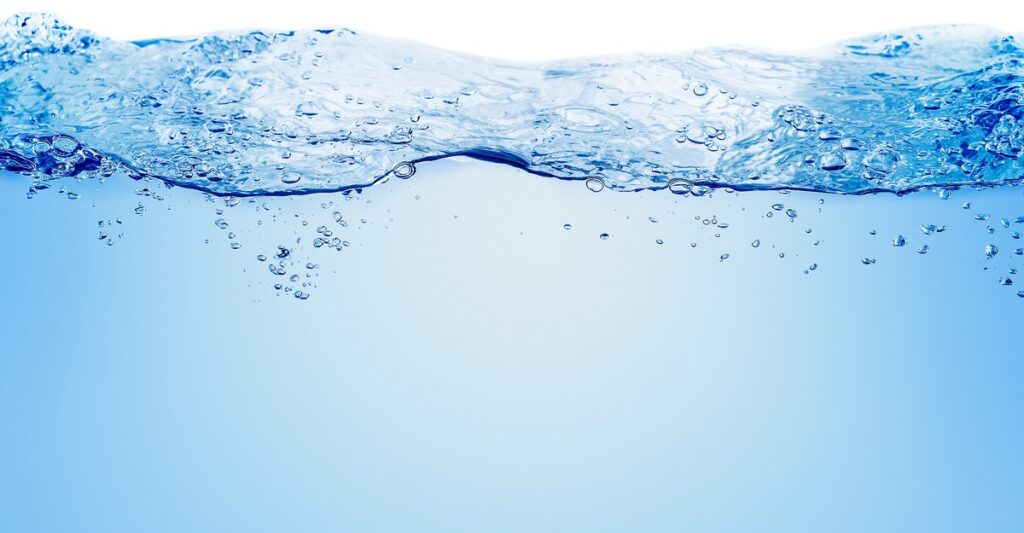Aquamation, also known as alkaline hydrolysis or water cremation, is a relatively new method of body disposition that is gaining popularity across the United States. The process, which uses a combination of water, heat, pressure, and alkali to break down the body, is seen as a more environmentally sustainable alternative to traditional cremation or burial.
As more people become aware of its benefits, aquamation is becoming a preferred choice for those looking to minimize their environmental impact even after death. In this comprehensive guide, we will explore how aquamation works, its benefits, costs, legal status across the U.S., and its growing acceptance in the funeral industry.
What is Aquamation?
Aquamation is a form of cremation, but instead of using fire, the process relies on water and alkaline chemicals to decompose the body. Specifically, the body is placed in a stainless-steel chamber filled with a solution that is 95% water and 5% alkali. The chamber is then heated to temperatures between 200 and 320 degrees Fahrenheit, and the body is broken down over the course of several hours. What remains after the process are bone fragments, which are dried and processed into a fine powder that can be returned to the family in an urn. The water used in the process contains dissolved organic materials and is safely disposed of through the wastewater system.
Aquamation mimics the natural process of decomposition that occurs in the soil but accelerates it by using water and heat. The scientific name for this process is alkaline hydrolysis, but it is also commonly referred to as water cremation, green cremation, flameless cremation, or resomation. The process itself typically takes between six to 20 hours, depending on the size of the body and the specific system being used.
Environmental Benefits of Aquamation
One of the most significant advantages of aquamation is its low environmental impact. Traditional flame cremation requires high heat (around 1,400 to 1,800 degrees Fahrenheit) and the burning of fossil fuels, which releases carbon dioxide, mercury from dental fillings, and other pollutants into the atmosphere. In contrast, aquamation operates at much lower temperatures and does not rely on fossil fuels, making it an energy-efficient process. According to industry reports, aquamation uses approximately 90% less energy than flame cremation and produces no harmful emissions. Additionally, since the water solution used in aquamation is non-toxic and contains only natural by-products, the liquid can be safely treated and discharged through standard wastewater systems.
Another environmental benefit of aquamation is that it preserves the body’s implants, such as pacemakers, artificial joints, and metal fillings. These do not need to be removed before the process, as they do not interfere with aquamation. After the procedure, they can be safely recycled, further reducing waste.
See also: Is Aquamation Eco-friendly?
Legal Status of Aquamation in the United States By State
Although aquamation is becoming more widely accepted in the U.S., it is not yet legal in every state. As of 2024, the process is legal in about half of the states, with legislation pending in several others. States that have legalized aquamation include California, Florida, Minnesota, Oregon, and Washington, among others. However, there are still states where the practice is not yet permitted, primarily due to regulatory hurdles and concerns about wastewater treatment.
The table below provides an overview of where aquamation is currently legal, where it is pending, and where it is not yet permitted:
As of December 2024, the legal status of aquamation (also known as alkaline hydrolysis or water cremation) varies across the United States. Below is a state-by-state overview:
| State | Legal Status | Notes |
|---|---|---|
| Alabama | Legal | Legal since 2017. |
| Alaska | No Law | No specific legislation regarding aquamation. |
| Arizona | Legal | Legal since 2023. |
| Arkansas | No Law | No specific legislation regarding aquamation. |
| California | Legal | Legal since 2017. |
| Colorado | Legal | Legal since 2011. |
| Connecticut | Legal | Legal since 2016. |
| Delaware | No Law | No specific legislation regarding aquamation. |
| D.C. | No Law | No specific legislation regarding aquamation. |
| Florida | Legal | Legal since 2010. |
| Georgia | Legal | Legal since 2012. |
| Hawaii | Legal | Legal since 2022. |
| Idaho | Legal | Legal since 2014. |
| Illinois | Legal | Legal since 2012. |
| Indiana | No Law | No specific legislation regarding aquamation. |
| Iowa | No Law | No specific legislation regarding aquamation. |
| Kansas | Legal | Legal since 2011. |
| Kentucky | No Law | No specific legislation regarding aquamation. |
| Louisiana | No Law | No specific legislation regarding aquamation. |
| Maine | Legal | Legal since 2009. |
| Maryland | Legal | Legal since 2010. |
| Massachusetts | Legislation Pending | Efforts are ongoing to pass laws allowing aquamation. |
| Michigan | No Law | No specific legislation regarding aquamation. |
| Minnesota | Legal | Legal since 2003. |
| Mississippi | No Law | No specific legislation regarding aquamation. |
| Missouri | Legal | Legal since 2020. |
| Montana | No Law | No specific legislation regarding aquamation. |
| Nebraska | No Law | No specific legislation regarding aquamation. |
| Nevada | Legal | Legal since 2017. |
| New Hampshire | Not Legal | Previously legal; law repealed. |
| New Jersey | Legislation Pending | Efforts are ongoing to pass laws allowing aquamation. |
| New Mexico | No Law | No specific legislation regarding aquamation. |
| New York | Legislation Pending | Bills have been introduced to legalize aquamation, but they have not yet been enacted. |
| North Carolina | Legislation Pending | Legislative measures are being discussed to approve aquamation. |
| North Dakota | No Law | No specific legislation regarding aquamation. |
| Ohio | Legislation Pending | Proposals to legalize aquamation are pending in the state legislature. |
| Oklahoma | Legal | Legal since 2021. |
| Oregon | Legal | Legal since 2009. |
| Pennsylvania | Legislation Pending | House Bill 1172 passed the PA House in May 2024; awaiting Senate vote. |
| Rhode Island | No Law | No specific legislation regarding aquamation. |
| South Carolina | No Law | No specific legislation regarding aquamation. |
| South Dakota | No Law | No specific legislation regarding aquamation. |
| Tennessee | Legal | Legal since 2013. |
| Texas | No Law | No specific legislation regarding aquamation. |
| Utah | Legal | Legal since 2018. |
| Vermont | Legal | Legal since 2014. |
| Virginia | Legislation Pending | Legislative efforts to legalize aquamation are ongoing. |
| Washington | Legal | Legal since 2020. |
| West Virginia | Legal | Legal since 2022. |
| Wisconsin | No Law | No specific legislation regarding aquamation. |
| Wyoming | Legal | Legal since 2014. |
Aquamation Cost in the U.S.
The cost of aquamation is generally comparable to that of traditional cremation, though it can vary depending on the region and the services provided by the funeral home. On average, the price for aquamation ranges from $2,000 to $3,000, making it a cost-effective option for many families. In comparison, traditional flame cremation typically costs between $800 and $3,000, depending on additional services such as viewings, memorials, and the cost of the urn.
Aquamation also offers the option of direct cremation, which involves cremating the body shortly after death without holding additional funeral services. This reduces the overall cost and can range from $1,000 to $3,000, making it one of the most affordable choices for body disposition.
Public Acceptance and Growing Popularity
As more people become environmentally conscious, aquamation is gaining traction as a preferred method of final disposition. Its growing popularity reflects a broader trend toward more sustainable and eco-friendly practices in various aspects of life, including death care. Funeral homes across the country are increasingly offering aquamation services as demand grows, and more states are moving toward legalizing the process.
One of the key reasons families choose aquamation is because it aligns with personal values of sustainability and conservation. Many individuals who opt for aquamation are concerned about the environmental impact of traditional cremation or burial, which can involve toxic chemicals, heavy machinery, and the consumption of natural resources. By choosing aquamation, families can reduce their carbon footprint and ensure that their final act is one that respects the planet.
A Compelling Alternative to Cremation
Aquamation presents a compelling alternative to traditional cremation and burial, offering a method that is not only more environmentally friendly but also cost-effective and increasingly available across the United States. With its minimal energy use, lack of harmful emissions, and lower environmental impact, aquamation is poised to become a major player in the future of funeral services. As more states legalize the process and more families become aware of its benefits, aquamation is likely to continue its rise in popularity as the “green” choice for after-death care.
Additional Resources
Additional Resources
For those exploring eco-friendly end-of-life options, the following resources can provide valuable information on aquamation and related sustainable practices:
- Aquamation Overview: Learn about the benefits and process of aquamation as a gentle and environmentally friendly alternative to traditional cremation. Visit Aquamation Overview.
- State-by-State Guide to Aquamation Costs: Understand how aquamation costs vary across different regions. Check out Aquamation Costs by State.
- Aquamation and Religion: Discover how various religious practices view aquamation and how it fits into different cultural contexts. Find more at Aquamation and Religion.
- Comparison of Aquamation and Cremation: For a detailed comparison of aquamation versus traditional cremation in terms of environmental impact and cost, refer to Cremation vs. Aquamation.
- Green Burial Options: If you’re considering additional eco-friendly alternatives beyond human composting and aquamation, explore the range of green burial choices available in your area at Green Burial Options.
These resources will help guide you through understanding modern, environmentally conscious funeral practices.







